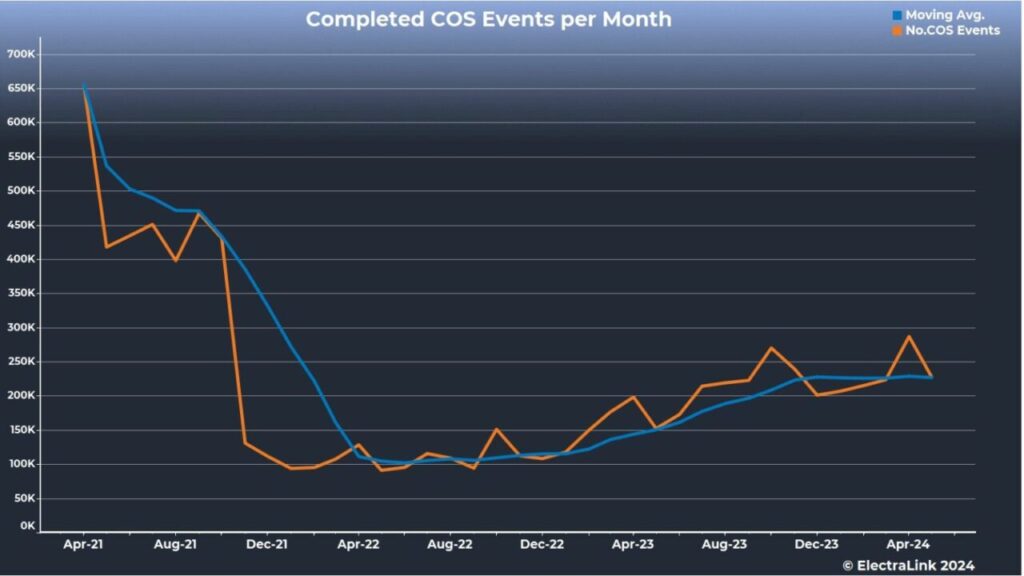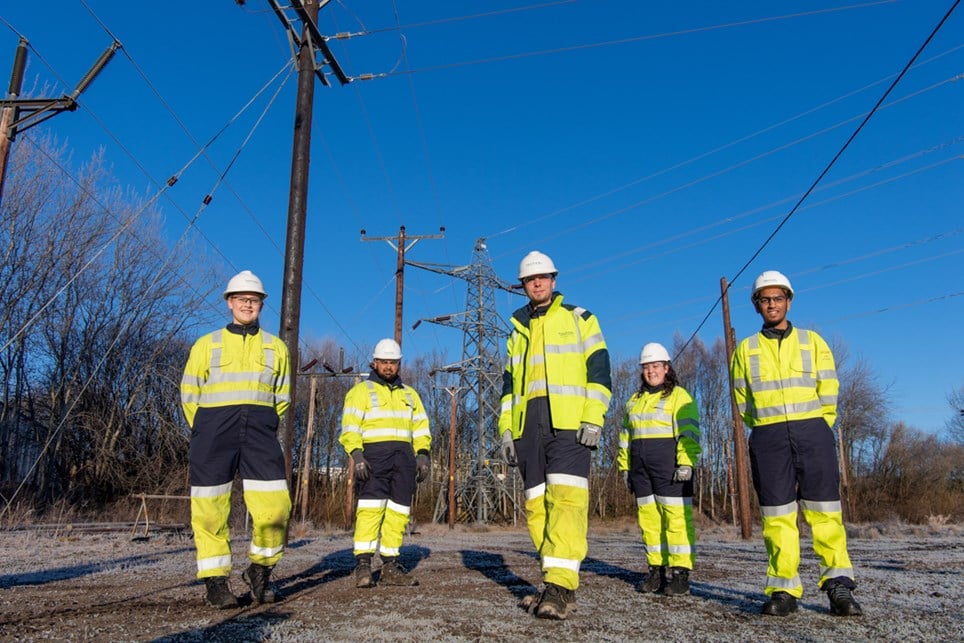In May, the six-month moving average for changes of supplier (CoS) settled at around 225,000 for the sixth month in a row, data from ElectraLink shows.
May this year saw 21% fewer switches than the previous month, when contract renewals among non-domestic customers had boosted CoS. However, CoS in May 2024 was still 49% more than in May 2023.
Year-to-date figures are up too, with 1.16 million CoS so far this year compared to 800,000 for the same period last year.
From 2019 until 2021 the moving average fluctuated between 480,000 and 550,000. Then, following the energy crisis Ofgem implemented a ban on acquisition-only tariffs (BAT) and switching slowed, leading to a fall in CoS. ElectraLink’s data has suggested that lower introductory tariffs do increase CoS.
ElectraLink’s chief data officer, Paul Linnane, recently told Utility Week: “Switching has been limited since the Covid-19 pandemic ebbed away and the energy price crisis emerged. Whilst the recent increase in switching [in April] highlights that demand for cheaper and innovative tariffs is increasing, I believe that the BAT is still limiting that demand.”

Extensive debate emerged after Ofgem opened consultation on removing BAT and reintroducing acquisition-only tariffs, from 1 October 2024, with another potential date the end of the existing BAT extension period, 31 March 2025. A decision is expected in July this year.
The energy regulator said retaining the BAT as an enduring market measure was “not compelling for either market stability or price protection reasons”. However, end users and industry leaders have rejected the idea that removing the ban would be positive for helping customers access better energy deals.
Octopus Energy promises fair prices in response to Ofgem BAT consultation
In response to Ofgem’s proposals, Octopus Energy pledged that its “best and lowest” tariffs would be available to existing customers, not just new ones. It said its ‘same price promise’ will prevent ‘tease and squeeze’ deals that see new customers benefit from deals while existing customers pay a higher rate.
Greg Jackson, the founder of Octopus Energy Group, said: “Energy doesn’t need Del Boy deals, and hide and seek pricing. It needs fair and transparent tariffs, with the energy price cap to protect everyone.”
The argument in favour of removing BAT and reintroducing acquisition-only tariffs is that it would generate competition between suppliers, providing better savings and service standards for customers. Indeed, as previously reported by Current±, Richard Neudegg, director of regulation at Uswitch.com, on the other hand, sees positives in lifting the BAT, stating that it heralds “good news for households seeking cheaper energy bills”.
When Ofgem’s consultation was announced, founder and chair of MoneySavingExpert.com, Martin Lewis, said: “The energy market is broken. We need anything possible right now to stimulate competition and bring prices down.
“The current UK retail energy system was built on the premise that firms would fight each other for customers and compete on price – yet that’s hardly happening.”
However, ElectraLink’s data suggest that switching suppliers is on the up—at almost 50% of pre-crisis levels.
Jackson said: “The latest data from Electralink shows switching returning to pre-crisis levels, illustrating that customers are confident to find the best companies and energy tariffs for them.”






